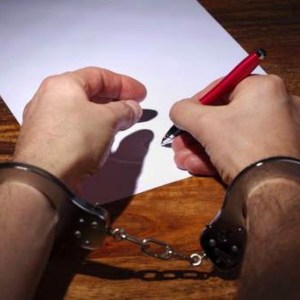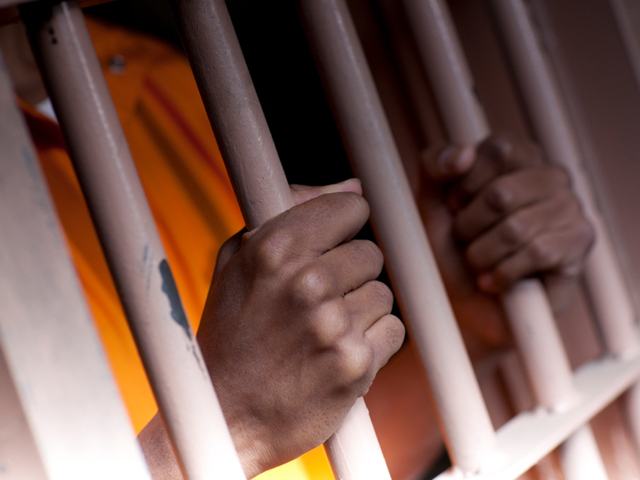
I was a 19 year old college student when charges of Armed Robbery and Theft over $500 was filed on me in my home town, Houma, La. The charges was a complete surprise and being a college student that was transferring from U.S.L. to L.S.U. in Baton Rouge. I could not immediately account for my whereabouts because the crime happened 3 months prior.
Blessedly, the crime happened on the Sunday after the annual red and white game at U.S.L. I was a transferring football player, the red and white was a special event for me because I was supporting my ex-teammates. Shortly, after the game I was arrested in Lafayette for driving with a suspended license.
Armed with a solid alibi, beingi n police custody is as solid an alibi anyone can get. I took my case to trial, the charge of Theft over $500, which was the theft of the victim’s vehicle that was discovered in New Orleans. The vehicle was used as the get-a-way car in another robbery in New Orleans a couple days after it was stolen in Houma.
N.O.P.D. subsequently arrested the people for the New Orleans robbery, but since the vehicle was abandon after a hgih speed chase, they never charged those individual with the Houma robbery.
In my case the theft was dismissed because DNA evidence did not link me to the vehicle or robbery in New Orleans.
There was 2 key elements that linked me to the Houma robbery. One, I was identified in a suggestive photographic line-up, where my photo was over-developed causing my medium complexion to be extremely dark.Thus making the photo in the line-up the darkest, which was a factor the victim stated for being the reason for picking the photo. The other victim chose someone else. The other thing that linked me was me pawning a camera taken from the robbery. I always admitted to pawning the camera, and at trial an associate testified that he was the one that found the camera. I’m just the one who pawned the camera.
Certainly, that’s not enough to find a person guilty in a court of law? In Louisiana far less is needed!
To be fair to my court-appointed attoreny, who sold me out, he did try to get me to take a plea deal, because the victims was parents of a prominent attorney in Houma, and implied that the judge was a friend of the family.
My jury was constructed of 10 white jurors and 2 black jurors. When I was found guilty it was by a 10-2 decision. My judge later sentenced me, a first offender to 60 years.
Is that along time for a crime where no one was physically hurt?
Was the judge’s sentencing based on any logical measure of justice?
A few years later my judge was suspended for racial insensitivity, where he wore a black face and and orange prisoner’s jumpsuit to a Halloween party.
During the 6 months he was off the bench, my case went in front a judge ad hoc (substitute judge) because of a letter I wrote asking him to look into my case.The judge ad hoc told my family that after reviewing my case he was calling me back because there were too many irregularities in my case.
Unfortunately, the case was pushed back, and my regular judge was back and commenced to deny all areas of relief. I filed a motion to recuse him because of his racial motivations and his personal affliation to the victims in my case.
My judge was the senior judge in the parish and was backed by his judging peers. They made numerous ruling and adjudications to diminish the appearance that my judge had any racial impropreity.
My judge has retired, but before that retirement. I filed motions concerning the denial of my alibi witnesses having the opportunity to testify at trial. My argument being the DA never initiated the alibi process, and I was under no obigatioin to give such a witness under the law. Even though I did give them a list of everyone that would testify, that particular witness was unable to be located by the DA’s office.
At trial after seeing that they had an extremely weak case and if all my witnesses testified that I was in Lafayette, coupled with the fact I was in police custody the day before the robbery in Houma. A reasonable jury would find me not guilty.
The DA argued that I violated the disclosure rule, and my judge ruled with the DA, and did not allow my witness to testify.
Years later after studying the law, I discovered that my alibi witness should have been allowed to testify because of the content of his testimony.That content being that I was at his home making phone calls 45 minutes before the robbery happened in Houma. The distance from Houma to Lafayette is at least an hour and a half speeding down highway 90..
There was no evidence the DA started the alibi process except a minute entry. I was at this hearing, and did not recall anything about the alibi being mentioned. I profusely remember my lawyer telling me he was going to hide my alibi witnesses on the list, and if they find them, they find them but we was not going to do their job for them. The DA found 2 of the alibi witnesses, which they had to allow.
More research showed that a minute entry must be backed by a transcript. My family asked for the transcript and was told the tape to make the transcript was lost.
Another motion for a new trial was filed, and a tape mysteriously appeard, and a transcript was made. The matter was settled, right?
I filed a motion questioning the authenticity of the tape. I was brought to court out of the blue to listen to the tape, and heard an audible glitch in the tape.
Had they used a CD, they would have had me, but having a childhood infatuation with being a DJ,mixing and splicing sound on cassette tapes, I knew what that sound was.
I requested to send the tape to a lab in Texas, and was met with hostile oposition from the judge, who recused himself after the hearing. The case went in front his drinking buddy, who commenced to deny all matters of releif without a hearing, and refused to allow an independent lab test the tape.
My case falls beyond the scope of being fair and impartial. The last chance to recieve fairness in my case was taken when Amendment 2 was passed by the voters ofLouisiana. Amendment 2 changed the constitution concerning non-unanimous jury verdict, but it only affects offenses committed on or after January 1, 2019.
Unbeknowing to many people the reason this state had non-unanimoous verdict dates back to the Louisiana Purchase in 1803, when Louisiana juries was required to deliever unanimous verdicts as being part of the United States. After the Civil War and the Reconstruction period in 1865, southern states had to rebuild a government that included the incorporation of the newly freed slaves.
Southern Democrates known as “Redeemers” regained control of the legal system with something called “convict leasing.” A person could not be a slave under the 13th Amendment, but could be subject to involuntary servitude if convicted of a crime.
Thus birthed convict leasing, and when blacks became the majority in prison.
Convict leasing allowed the state to rent out a prisoner’s labor to a person or company that needed free labor that slavery offered. The goal was to create enough free labor that the railroads, plantation owners, and other groups that used free labor would not suffer from the abolishing of slavery.
Howver. cases was being overturned by federal courts when a black person was convicted without having any blacks on the jury. The non-unanimous jury verdict rule derived because of this development.
Slavery was over, ex-slaves would travel to different places in search for work. They would be told there was no work, then get arrested for vagrancy, found guilty, and would often work at the very places that denied them empolyment. Though the labor would be free.
Since slavery was over there was one way to make sure trumped up charges would stick and not get overturned, and that was to lower the jury verdict rule. To find a person guilty was a 12 out of 12 process, it went to a 9 out of 12 process in 1880, and became part o fthe Louisiana Constituion in 1896. The constiution changed in 1973 to make the rulel 10 out of 12 to find a person guilty of a crime.
My case have many racial implicatioins of injusice and impropriety that is almost poetic the way my case flows into the Sea of Modern Day Slavery.
Slavery was great at deleting a people’s voice and not counting a person’s vote on a jury is just another way to cancel a person’s voice that speaks up aginst slavery.
If the supressed voices in one particular case was heard and not swallowed by a racial bias system. I would have never forfeited 22 years of freedom to enrich this state’s free labor pool.
However, to continue to supress the uncounted jury votes, and just hear them after 2019 and onwards. Simply says, we know about the racism, we knew about the racism, we condone the racism, but in 2019 we don’t want to be racist anymore. I have to ask you, how poetic is that?
Eyba Brown
DOC #397750



Even though racial bias, prejudice and slavery may be a part of the bigger picture, it is not relevant to your immediate needs, which are to establish your alibi. So, for starters, I would write to the police department a letter requesting the date and time you were in police custody. I am not a lawyer, but since this information was never introduced at your trial, it may be considered “new evidence” that could get you a new trial. Usually you only have thirty days after a conviction to file an appeal, and then you get a court appointed attorney for the appeal, and you could give the alibi information to the court appointed attorney. You might also write to your friend who found the camera and ask him to write a letter stating he found the camera and you pawned it (although this does seem suspicious, and you did not offer much explanation about it). Suspicious events such as your friend finding the camera and you pawning it need to be clarified, because other wise it seems like you think jurors are stupid enough to buy into a narrative that does not make full sense.
Your article needs to be organized a little better so the reader can understand it. It sounds lie you have been railroaded pretty badly, but some information is lacking. It was the State’s job to prove their case. They had the burden of proof. But since they succeeded at convincing a jury, now the burden is on you to prove your innocence. If you are in fact innocent you might also try contacting The Innocence Project. Find some pen pals to help you take care of some of this business for you. Good luck.